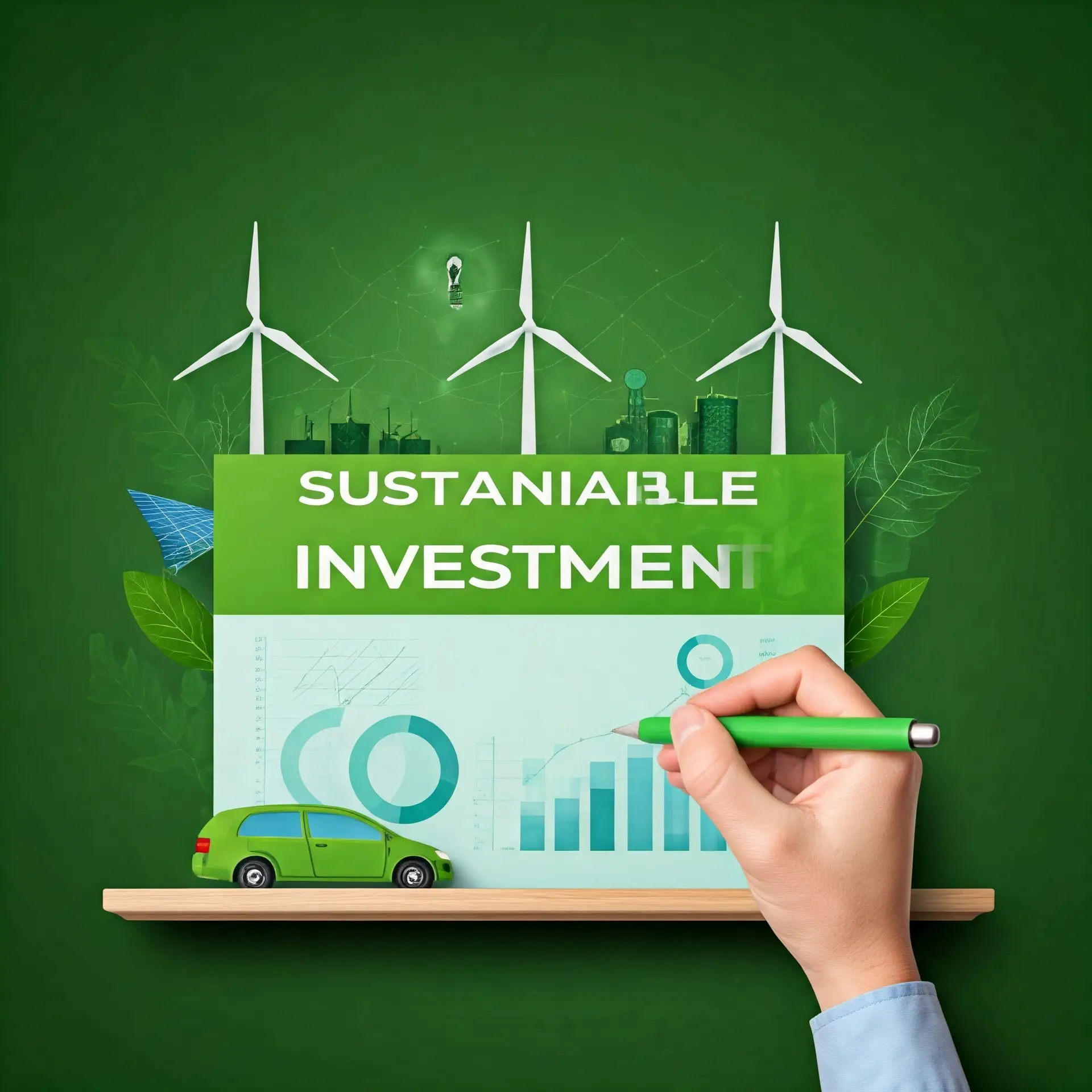Top Investment Strategies for 2025: Best Opportunities and Trends
Here are some investment avenues and trends that could be relevant in 2025, based on current financial landscapes and emerging market conditions:
1. Equities (Stocks)
The stock market will likely remain a strong contender for long-term wealth creation, though it’s essential to focus on specific sectors and themes:
- Technology: Tech stocks, especially in AI, cloud computing, quantum computing, and renewable energy technology, are poised to grow. Companies that lead in artificial intelligence, machine learning, and automation could be a strong investment.
- Green Energy: As countries and corporations aim to meet net-zero targets, renewable energy companies involved in solar, wind, hydrogen, and battery technology may offer strong returns.
- Healthcare & Biotechnology: Post-pandemic, healthcare is expected to remain a crucial sector. Pharmaceuticals, biotech innovations, and mental health-focused companies might be good bets.
- Emerging Markets: Investing in emerging markets like India, Southeast Asia, or Africa could prove fruitful as these regions are expected to see accelerated growth due to urbanization, digital transformation, and a rising middle class.
2. Real Estate
Real estate remains a solid long-term investment, especially in high-growth cities and regions.
- Commercial Real Estate: With more businesses adopting hybrid models, demand for office spaces could rise again, especially in cities seeing rapid development.
- Residential Real Estate: Urbanization trends, as well as interest in suburban and semi-urban areas post-pandemic, may continue to drive demand for homes.
- REITs (Real Estate Investment Trusts): These could offer a good option for investors who want exposure to real estate without the hassle of directly owning property.
3. Cryptocurrency & Blockchain
Despite the volatility, blockchain technology and cryptocurrencies could continue to evolve, with potential mainstream adoption.
- Bitcoin and Ethereum: These two cryptocurrencies remain the primary players and could serve as digital assets or store-of-value investments.
- Web3 Projects: Decentralized finance (DeFi) and other blockchain-based projects might continue to gain popularity, though they are speculative and risky investments.
4. Mutual Funds & ETFs
For conservative investors or those looking for diversification without having to pick individual stocks, mutual funds and exchange-traded funds (ETFs) will remain important.
- Index Funds: These funds that track market indices like the S&P 500 have historically offered solid returns and could be especially appealing in uncertain markets.
- ESG Funds: Environmental, Social, and Governance (ESG) funds are gaining traction as more investors look for socially responsible options.
- Thematic ETFs: ETFs that focus on specific trends, such as artificial intelligence, electric vehicles, or space exploration, may gain traction as these themes continue to grow.
5. Bonds & Fixed Income Securities
In a world of rising interest rates, fixed income might offer more attractive yields in 2025.
- Government Bonds: These will still be a safe haven, especially in volatile markets. Bonds from high-growth emerging markets could also provide attractive yields.
- Corporate Bonds: With the economic recovery, corporate bonds could offer attractive returns, particularly from companies with strong fundamentals.
- Inflation-Protected Securities: These are a good hedge against inflation, especially if global inflation remains high due to geopolitical risks or supply chain disruptions.
6. Commodities
Investing in commodities such as gold, silver, and industrial metals could continue to be a hedge against inflation and market volatility.
- Gold: As a traditional hedge against inflation and economic uncertainty, gold will remain an important portfolio component.
- Silver and Industrial Metals: Metals like lithium (for batteries) and copper (for electric vehicle infrastructure) could become more attractive as demand rises due to the green energy transition.
7. Private Equity and Venture Capital
For those with a higher risk tolerance and longer investment horizons, private equity (PE) and venture capital (VC) investments could offer high potential returns.
- Startups in Technology and Sustainability: As global economies push toward innovation, backing the next big tech company or a startup in clean energy, electric vehicles, or healthtech might be profitable.
- Private Equity Funds: These funds invest in private companies and usually require high capital but can yield substantial returns over time.
8. Alternative Investments
Alternative investments could provide diversification away from traditional stocks and bonds.
- Art, Collectibles, and Wine: These alternative assets have historically outperformed traditional markets in some cases and can serve as a store of value.
- Hedge Funds: Some hedge funds, particularly those that employ advanced strategies such as quant trading or global macro, might offer good returns for high-net-worth individuals.
9. Sustainable and Impact Investing
With increasing awareness about environmental issues, sustainable and impact investing will likely gain further prominence.
- Clean Energy Infrastructure: Direct investments in clean energy infrastructure, including wind and solar farms, might continue to grow.
- Sustainable Agriculture and Water: As global populations grow and resources become strained, investments in sustainable agriculture or water technology could see growth.
Key Considerations for 2025:
- Geopolitical Risks: Be mindful of risks from global tensions, especially in regions like Europe, the Middle East, and Asia.
- Interest Rates: Central banks may adjust their interest rate policies, which could influence bond prices and equity markets.
- Inflation: Persistent inflation or deflation will influence which asset classes perform well.
- Technology and Automation: The acceleration of automation, AI, and robotics will likely transform industries and could create high growth opportunities.
Final Thoughts:
The investment landscape in 2025 is expected to be shaped by technological advancements, sustainability trends, and evolving geopolitical dynamics. Investors should focus on diversification and continue to monitor global trends, adapting portfolios to emerging opportunities while managing risk.
If you’re looking for more detailed investment advice, I recommend consulting a financial advisor who can offer tailored recommendations based on your risk tolerance, financial goals, and time horizon.
